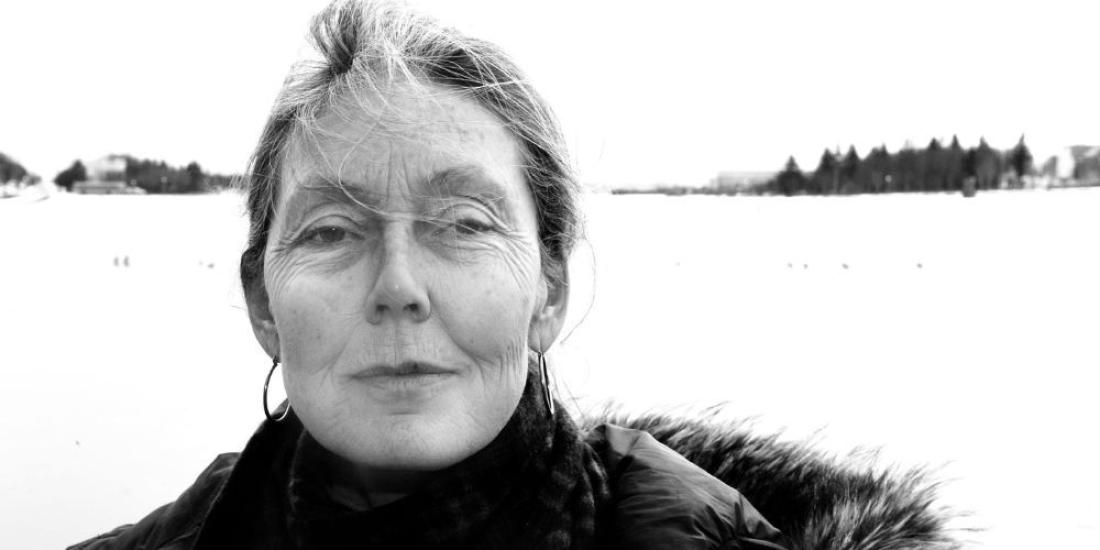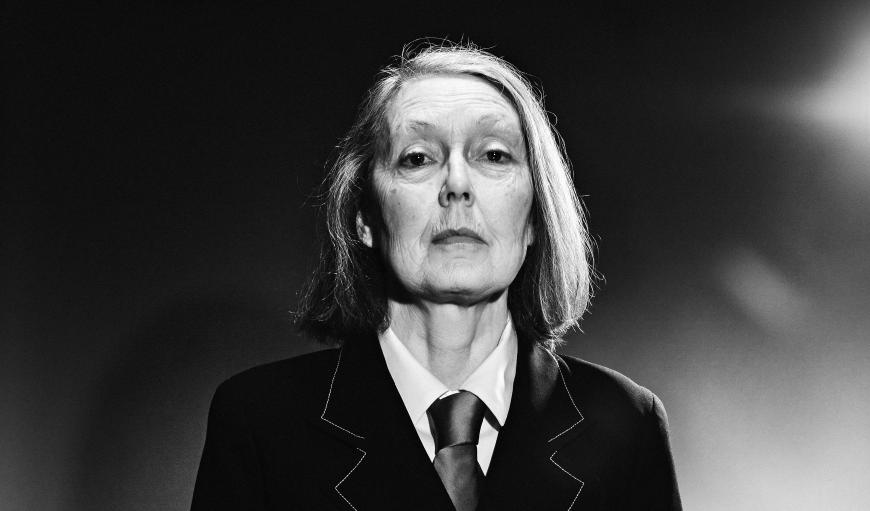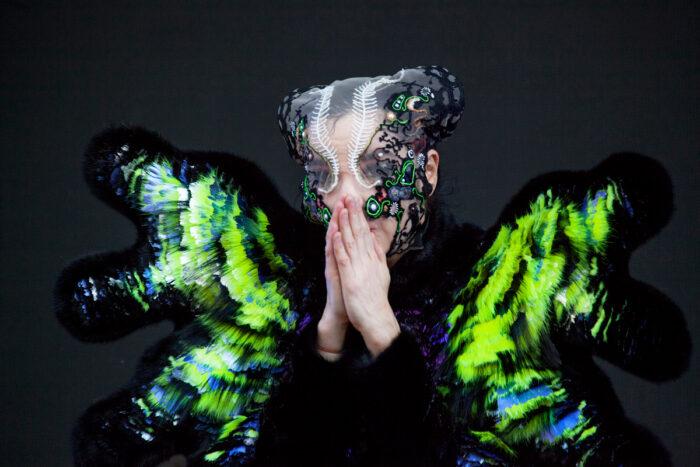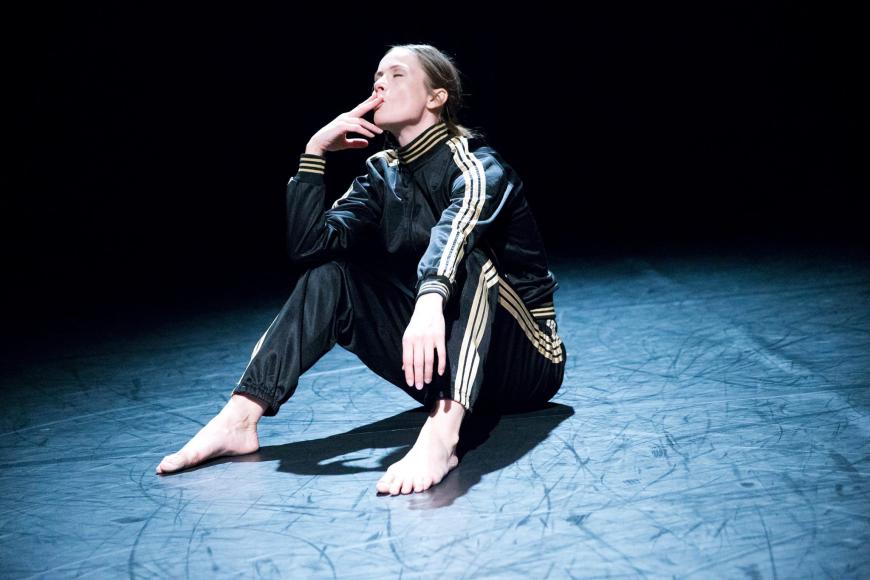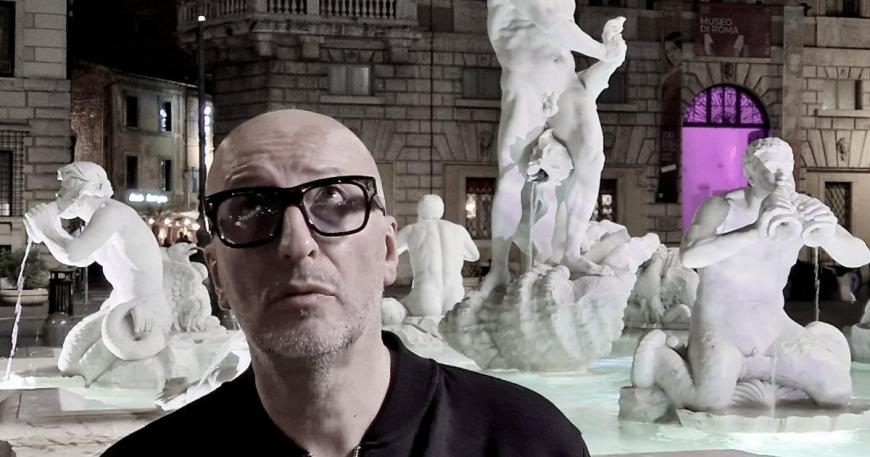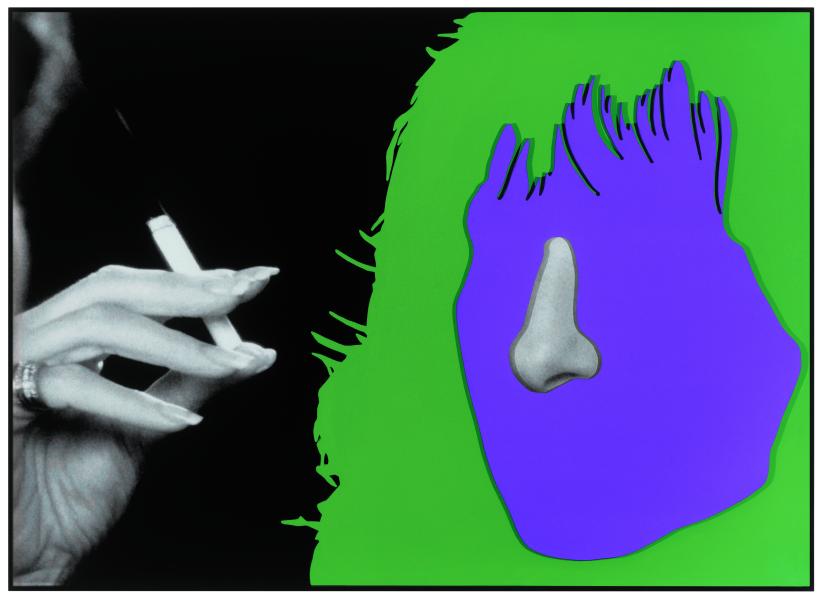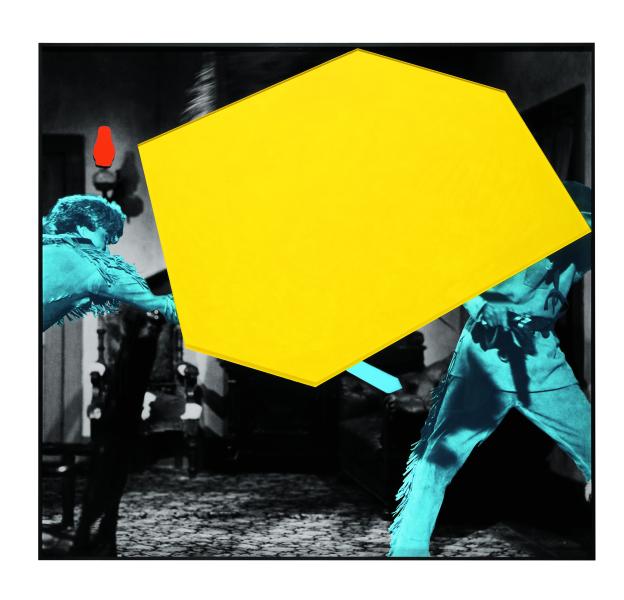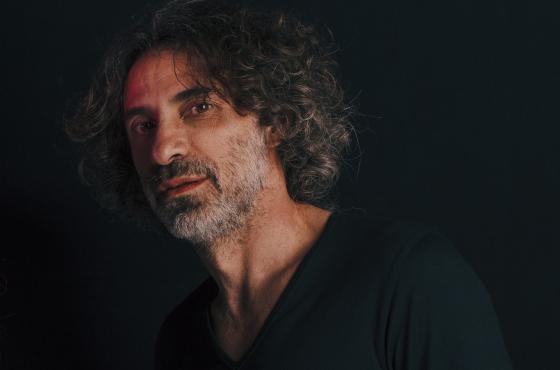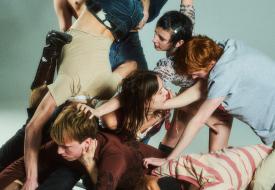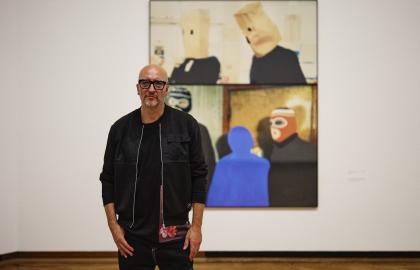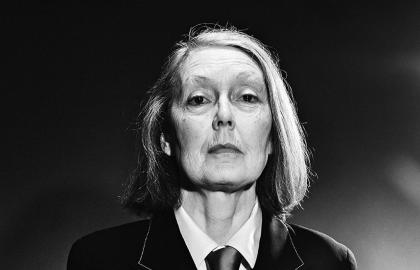Complex ideas and structures are not avoided; rather, through contemporary forms, they come together to create a fascinating and relevant whole. In an era of rapid communication, fleeting swipes and fragmented attention spans, poetry serves as a reminder of the power of language – and how different art forms can complement, rather than constrain, each other. At the core remains the poet’s language, which, in all its sharpness, evokes uncharted spaces. It fuels our imagination and challenges our perceptions of both art and the world.
I used to think I would grow up to be a person whose reasoning was deep,
instead I became a kind of brush.
I brush words against words. So do we follow ourselves out of youth,
brushing, brushing, brushing wild grapes onto truth.
Meet the Writer: Anne Carson
A man sits on stage, embroidering. A camera tracks his hands, projecting their movements onto a large screen. The scratching sound of the needle in the fabric is amplified through speakers. A second screen displays the feet and legs of dancers. Other dancers are positioned on stage or weave through the audience, their movements responding to the projected images and the sound of the needle. At the centre of it all is the voice of Canadian poet Anne Carson, who sits reading her poetry. Though it may seem like an unusual combination, the interplay of words, images, movement, and sound creates a harmonious whole.
Anne Carson is one of the most influential voices in contemporary English-language poetry. The Canadian poet is renowned for modern classics like Autobiography of Red, The Beauty of the Husband, and Wrong Norma. What sets her work apart is her blending of poetry, prose, theatre and essays into a unique hybrid form, drawing on influences from both classical antiquity and the modern literary canon.
Her public performances are extremely rare, making the evening in our concert hall a truly unique experience (13 September). Carson will perform her sonnet cycle Possessive Used as Drink (Me): A Lecture on Pronouns on stage. These poems delve into how pronouns shape our relationships, identities and desires. They intertwine grammar, poetry and philosophy into intimate reflections on language and possession. Language is approached as something physical, dynamic and fundamentally human. One of the surprising questions she poses is, 'Do you consider your saliva as something you own or can sell?’
Elsewhere in her ‘reading,’ she reflects on figures such as Marcel Duchamp, Gertrude Stein, Oscar Wilde and even God. The poems are both conceptual and humorous. During the lecture performance, they gain additional depth through their interplay with the work of other artists. The second piece that Carson will read, By Chance the Cycladic People, is inspired by ancient Greek civilization. Carson’s deep knowledge of classical antiquity comes from her work as a translator of Sophocles and Sappho, as well as her years as a university lecturer in ancient Greek.
The two performances bring together a range of voices, including visual artist Robert Currie, a long-time collaborator of Anne Carson, Icelandic dancer Aðalheiður Halldórsdóttir, and British artist James Merry, known for his embroidery and the masks he created for Björk. Unique to this rare screening, Brussels dancers and a choir will also participate, especially for Bozar. The evening will conclude with a conversation between Anne Carson and the performers, moderated by writer and journalist Annelies Beck.
Dirk van Bastelaere meets John Baldessari
Belgian poet and essayist Dirk van Bastelaere is widely regarded as one of the most important postmodern poets of the Low Countries. His work has been deeply influenced by American artists and poets such as Gertrude Stein, David Lynch and John Baldessari. At Bozar’s request, Van Bastelaere drew inspiration from the oeuvre of Baldessari, to whom Bozar is dedicating a major retrospective this autumn.
Van Bastelaere has long been studying the American artist. After years of being unpublished, he created a new cycle of poems. Een revolver zonder vervolg, net als de volgende revolver [A revolver without a sequel, just like the next revolver] is a poetic, associative exploration of image, language and meaning. The poet begins with California, using Hollywood and John Baldessari as cultural symbols, and connects them to questions of representation and the role of media. Through numerous cinematic references and striking metaphors, his poems evoke the chaos of contemporary visual culture. This contrapuntal reading of Baldessari’s oeuvre both broadens and deepens our understanding of the dominant American visual culture.
The poems will be collated into a trilingual book published by Bozar and Balanseer. This publication will be launched during a special evening at Bozar (19 November), where Van Bastelaere will read his poetry and discuss Baldessari with Christophe Van Gerrewey, writer and editor-in-chief of the Flemish art magazine De Witte Raaf. On the same evening, a special issue of De Witte Raaf dedicated to Baldessari will also be presented.
Poetry meets Percussion
During the third programme (15 Janurary, 2026), verses are set to percussion. This is the idea behind Poetry meets Percussion, a musical-literary evening focused on the interplay between three percussionists and three writers. Sihame Haddioui, Vieze Meisje and Loucka E. Fiagan write with both force and wit. Their lyrics, deeply rooted in metropolitan life, offer sharp reflections on the absurdity of the everyday, while also addressing larger, damaging systems, like the relentless drive for productivity and racism. For this event, they collaborate with percussionists to create a dynamic dialogue between text and rhythm. Haddioui performs in French, Vieze Meisje in Dutch, and Loucka E. Fiagan in English.
